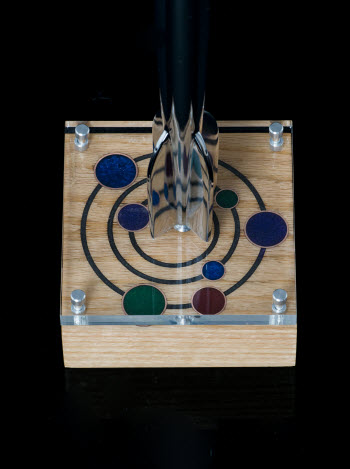
Last weekend, MidAmeriCon II hosted the 2016 Worldcon, the 74th World Science Fiction Convention.
Every year, the big gala is the Hugo Awards banquet. What makes the Hugos different from other awards is that it is voted on by fans, specifically those who have purchased memberships to Worldcon. The members vote on the nominees, usually receive a packet of the winners to read (because these voters are usually the most literate members of science fiction fandom, and it’s smart marketing for publishers to send them free books), and then vote again on the finalists.
According to the Hugo Awards website, in 2016:
3,130 valid final ballots were cast by the members of MidAmeriCon II. Per the WSFS Constitution, each category must have at least 25% (1,488 ballots) participation; otherwise “No Award” must be presented in this category. This did not happen in any category. In the list below, we show the number of ballots cast in that category.
4032 valid nominating ballots (4015 electronically-submitted and 17 paper) were received and counted. Members of the 2015, 2016, and 2017 Worldcons as of the end of January 2016 were eligible to make up to five equally-weighted nominations in each category.
Besides an interesting balloting procedure known as “Instant Runoff Voting” (which was due to be amended this year to discourage slate/block voting), the Hugos also release the full voting data! Not only are the finalists ranked by vote tally, but the top fifteen nominees are also public!
I’m ignoring all of the drama over diversity and hurt butts, as I’m not really in that fandom, and there are many others online who are better at discussing the entire debacle. I covered it a bit in last year’s post.
So… Here is an amended list of winners of interest to comics fans:
Best Graphic Story (2,171 final ballots, 1838 nominating ballots)
- The Sandman: Overture written by Neil Gaiman, art by J.H. Williams III (Vertigo)
- No Award
- Invisible Republic Vol 1 written by Corinna Bechko and Gabriel Hardman, art by Gabriel Hardman (Image Comics)
- The Divine written by Boaz Lavie, art by Asaf Hanuka and Tomer Hanuka (First Second)
- Full Frontal Nerdity by Aaron Williams (ffn.nodwick.com)
- Erin Dies Alone written by Grey Carter, art by Cory Rydell (dyingalone.net)
Best Dramatic Presentation, Long Form (2,171 final ballots, 2904 nominating ballots)
- The Martian screenplay by Drew Goddard, directed by Ridley Scott (Scott Free Productions; Kinberg Genre; TSG Entertainment; 20th Century Fox)
- Mad Max: Fury Road written by George Miller, Brendan McCarthy, and Nico Lathouris, directed by George Miller (Village Roadshow Pictures; Kennedy Miller Mitchell; RatPac-Dune Entertainment; Warner Bros. Pictures)
- Star Wars: The Force Awakens written by Lawrence Kasdan, J. J. Abrams, and Michael Arndt, directed by J.J. Abrams (Lucasfilm Ltd.; Bad Robot Productions; Walt Disney Studios Motion Pictures)
- Ex Machina written and directed by Alex Garland (Film4; DNA Films; Universal Pictures)
- Avengers: Age of Ultron written and directed by Joss Whedon (Marvel Studios; Walt Disney Studios Motion Pictures)
Best Dramatic Presentation, Short Form (2,423 final ballots, 2219 nominating ballots)
- Jessica Jones: “AKA Smile” written by Scott Reynolds, Melissa Rosenberg, and Jamie King, directed by Michael Rymer (Marvel Television; ABC Studios; Tall Girls Productions;Netflix)
- Doctor Who: “Heaven Sent” written by Steven Moffat, directed by Rachel Talalay (BBC Television)
- Grimm: “Headache” written by Jim Kouf and David Greenwalt, directed by Jim Kouf (Universal Television; GK Productions; Hazy Mills Productions; Open 4 Business Productions; NBCUniversal Television Distribution)
- No Award
- Supernatural: “Just My Imagination” written by Jenny Klein, directed by Richard Speight Jr. (Kripke Enterprises; Wonderland Sound and Vision; Warner Bros. Television)
- My Little Pony: Friendship Is Magic: “The Cutie Map” Parts 1 and 2 written by Scott Sonneborn, M.A. Larson, and Meghan McCarthy, directed by Jayson Thiessen and Jim Miller (DHX Media/Vancouver; Hasbro Studios)
Note “No Award”. According to the Hugo Award website:
No Award
Under each category you will also be given the choice of voting for No Award.
You should vote for No Award as your first choice if you believe that none of the nominees are worthy of the Award, or that the Award category should be abolished. If you vote for No Award in any other position it means that you believe the nominees you placed above No Award were worthy of a Hugo, but that those not placed above it were not worthy. However, as we shall see, it is possible to rank nominees below No Award and have an effect on the outcome.
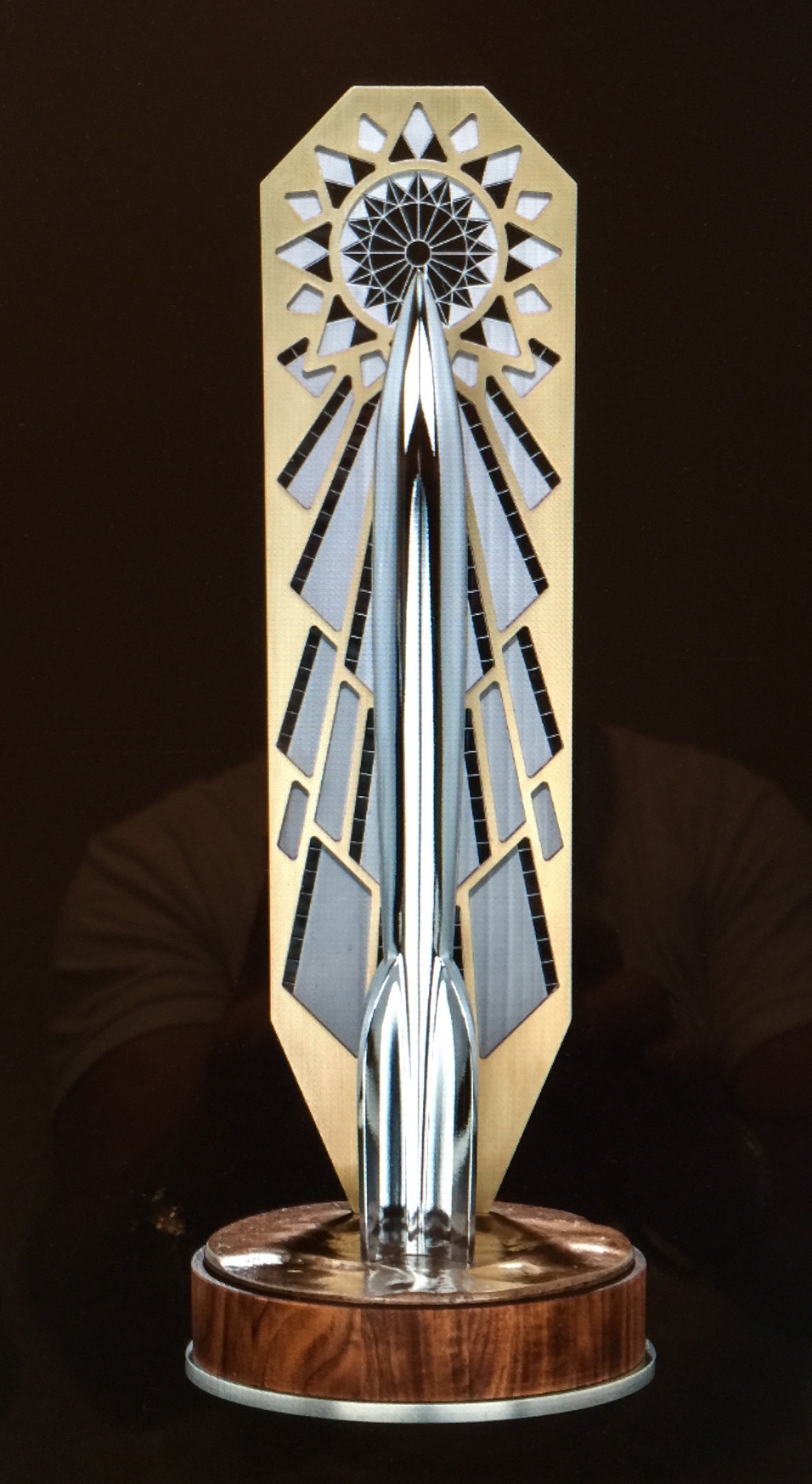
Another interesting ripple is that the Hugo Awards allow for retro Hugo Awards to be awarded:
The World Science Fiction Society Constitution allows, but does not require, a Worldcon held 50, 75, or 100 years after a Worldcon at which no Hugo Awards were presented to present Retrospective Hugo Awards for works that would have been eligible for that year’s Hugo Awards if they had been held.
Thus, in addition to 2016 winners, there were also retroactive winners from 1941, in categories which paralleled 2016’s!
Which means… COMICS!
Who was nominated? Who won?
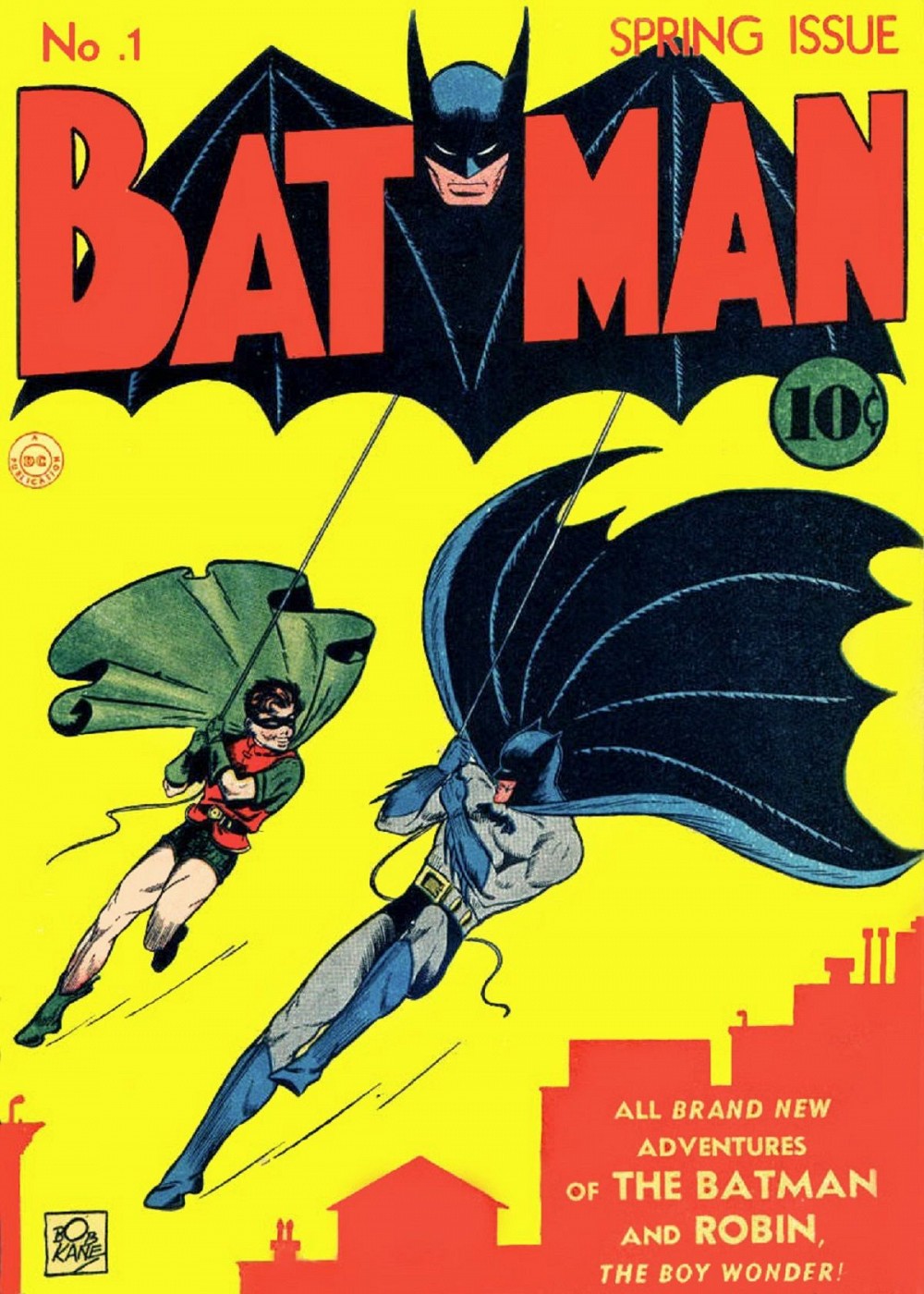
Best Graphic Story (92 nominating ballots)
- Batman #1 (Detective Comics, Spring 1940)
- Captain Marvel: “Introducing Captain Marvel” by Bill Parker and C. C. Beck (Whiz Comics #2, Feb 1940)
- Flash Gordon: “The Ice Kingdom of Mongo” by Alex Raymond and Don Moore (King Features Syndicate, Apr 1940)
- The Origin of the Spirit by Will Eisner (Register and Tribune Syndicate, June 1940)
- The Spectre: “The Spectre”/”The Spectre Strikes!” by Jerry Siegel and Bernard Baily (More Fun Comics #52/53, Feb/Mar 1940)
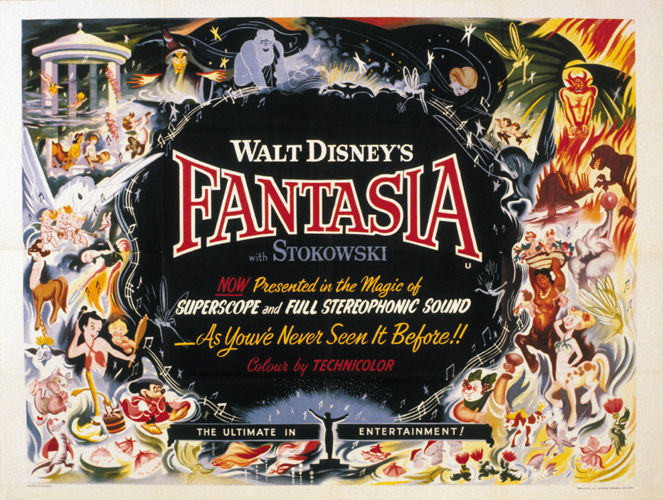
- Fantasia written by Joe Grant and Dick Huemer, directed by Samuel Armstrong et al. (Walt Disney Productions, RKO Radio Pictures)
- Dr. Cyclops written by Tom Kilpatrick, directed by Ernest B. Schoedsack (Paramount Pictures)
- Flash Gordon Conquers the Universe written by George H. Plympton, Basil Dickey, and Barry Shipman, directed by Ford Beebe and Ray Taylor (Universal Pictures)
- One Million B.C. written by Mickell Novack, George Baker, and Joseph Frickert, directed by Hal Roach and Hal Roach, Jr. (United Artists)
- The Thief of Bagdad written by Lajos Bíró and Miles Malleson, directed by Michael Powell, Ludwig Berger, and Tim Whelan (London Films, United Artists)
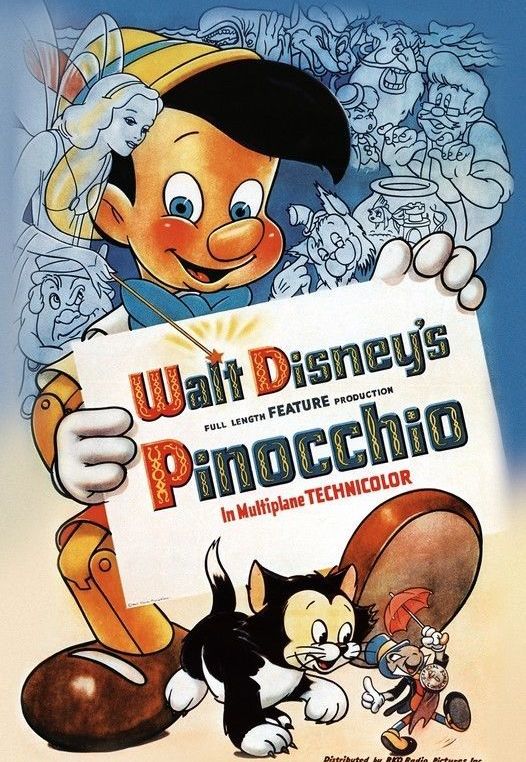
- Pinocchio written by Ted Sears et al., directed by Ben Sharpsteen and Hamilton Luske (Walt Disney Productions, RKO Radio Pictures)
- The Adventures of Superman: “The Baby from Krypton” written by George Ludlam, produced by Frank Chase (WOR)
- The Invisible Man Returns written by Joe May, Kurt Siodmak, and Lester Cole, directed by Joe May (Universal Pictures)
- Looney Tunes: “You Ought to Be in Pictures” written by Jack Miller, directed by Friz Freleng (Warner Bros.)
- Merrie Melodies: “A Wild Hare” written by Rich Hogan, directed by Tex Avery (Warner Bros.)
Numerous other awards were presented. Here are winners of note, as reported by Locus Online.
2016 Alfie Awards
The Alfie Awards were presented at midnight on August 20, 2016, during George R.R. Martin’s Hugo Losers Party, held at the Midland Theatre in Kansas City MO. The awards, named in honor of Alfred Bester (whose The Demolished Man was the first ever novel Hugo Award winner), with trophies created using ’50s hood ornaments, went to the top runner-up pushed off various categories of the Hugo Awards ballot by the Rabid Puppy slate, as well as several committee choices.
- Best Graphic Novel: Bitch Planet, Volume 1: Extraordinary Machine, Kelly Sue DeConnick, Valentine De Landro, Taki Soma & Robert Wilson (Image)
2016 Aurora Awards Winners
The 2016 Aurora Awards winners have been announced, celebrating the “best works and activities done by Canadians in 2015.”
Best Graphic Novel
- The Lady ParaNorma, Vincent Marcone (ChiZine)
- Infinitum: Time Travel Noir, GMB Chomichuk (ChiZine)
- Bloodsuckers: Volume 2, J.M. Frey, illustrated by Ryan Cole (Toronto Comics)
- Crash and Burn: Prologue, Kate Larking & Finn Lucullan (Astres)
- West of Bathurst: The Complete Collection, Kari Maaren (self-published)
And now… the voting statistics for graphic novels!
First, the nominees. Only the top fifteen are listed. Each ballot can nominate five choices.
| Best Graphic Story (1,838 ballots) | |||
|
520 |
The Sandman: Overture |
Neil Gaiman / J.H. Williams III |
28.29% |
|
376 |
Full Frontal Nerdity |
Aaron Williams |
20.46% |
|
362 |
Erin Dies Alone |
Cory Rydell and Grey Carter |
19.70% |
|
356 |
Invisible Republic Vol 1 (#1-5) |
Corinna Bechko and Gabriel Hardman |
19.37% |
|
349 |
The Divine |
Boaz Lavie/Asaf and Tomer Hanuka |
18.99% |
|
271 |
Bitch Planet, Vol. 1: Extraordinary Machine |
Kelly Sue DeConnick, Valentine De Landro, Taki Soma, and Robert Wilson |
14.74% |
|
258 |
Saga Volume 5 |
Brian K. Vaughn/Fiona Staples |
14.04% |
|
205 |
Ms. Marvel, Vol. 2: Generation Why |
G. Willow Wilson / Adrian Alphona (Artist), Jacob Wyatt (Artist) |
11.15% |
|
174 |
The Unbeatable Squirrel Girl Vol 1: Squirrel Power |
Ryan North (Writer), Erica Henderson (Artist) |
9.47% |
|
162 |
Rat Queens, Vol. 2: The Far Reaching Tentacles of N’rygoth |
Kurtis J. Wiebe |
8.81% |
|
156 |
The Sculptor |
Scott McCloud |
8.49% |
|
148 |
The Thrilling Adventures of Lovelace and Babbage |
Sydney Padua |
8.05% |
|
136 |
The Wicked + The Divine, Vol. 2: Fandemonium |
Kieron Gillen / Jamie McKelvie & Matt Wilson |
7.40% |
|
99 |
Stand Still Stay Silent – Volume 1 |
Minna Sundberg |
5.39% |
That’s right… you only needed to convince 349 people to pay $50 for a Supporting Membership and to vote for your book! $17,500 to do it the easy way. Less if you do a “for your consideration” campaign via social media. Does SF fandom consider that gauche?
What if comics publishers actually exhibited at Worldcons? Sponsored creators for panels? Would that generate goodwill for future ballots? [I couldn’t find an exhibitor listing for MidAmeriCon II. Last year, Girl Genius was the predominant comics publisher.]
And now the actual voting!
2016 Final Results for Best Graphic Story
3,130 valid ballots cast. 25% cutoff = 753 voters. 2,171 valid votes cast in category.
Race For Position 1 |
||
|
Finalist |
Pass 1 |
Run0ff |
|
1366 |
1636 |
|
|
No Award |
444 |
468 |
|
163 |
||
|
93 |
||
|
75 |
||
|
30 |
||
|
Preference |
2171 |
2104 |
|
No Preference |
0 |
67 |
|
Total Votes |
2171 |
2171 |
The runoff is The No Award Test, in which the presumptive winner is tested against any voting for “No Award”.
Now the placements are determined by counting the ballots again, removing the previous winner.
Here is where you can see how people voted downstream, as not everyone listed preferences for all five nominees. As seen above, “No Award” was the first preference on 444 ballots.
Looking at each subsequent race, you can see how the “no preference” count, a blank vote, curves upward rapidly. Part of this is due to the slate campaign for the nominees, and the resulting backlash from regular voters to not only vote “No Award” as a second choice, but to also not vote for the slate nominees, leaving the rest of the ballot blank. “No Preference” is actually the third winner, although the system does not recognize that choice. Only 506 ballots were completely filled in, which could indicated the upper limit of the Puppies’ influence. (It could be lower, as some voters might have ignored or been unaware of the campaigning.)
Race For Position 2 |
|
|
Finalist |
Pass 1 |
|
No Award |
1011 |
|
Invisible Republic Vol 1 |
358 |
|
The Divine |
196 |
|
Full Frontal Nerdity |
140 |
|
Erin Dies Alone |
74 |
|
Preference |
1779 |
|
No Preference |
392 |
|
Total Votes |
2171 |
Race For Position 3 |
||
|
Finalist |
Pass 1 |
Pass 2 |
|
Invisible Republic Vol 1 |
401 |
420 |
|
The Divine |
217 |
234 |
|
Full Frontal Nerdity |
151 |
170 |
|
Erin Dies Alone |
83 |
|
|
Preference |
852 |
824 |
|
No Preference |
1319 |
1347 |
|
Total Votes |
2171 |
2171 |
Race For Position 4 |
|
|
Finalist |
Pass 1 |
|
The Divine |
384 |
|
Full Frontal Nerdity |
210 |
|
Erin Dies Alone |
130 |
|
Preference |
724 |
|
No Preference |
1447 |
|
Total Votes |
2171 |
Race For Position 5 |
|
|
Finalist |
Pass 1 |
|
Full Frontal Nerdity |
262 |
|
Erin Dies Alone |
244 |
|
Preference |
506 |
|
No Preference |
1665 |
|
Total Votes |
2171 |
No word yet on the rule changes discussed at this year’s Business Meeting. Next year might find a more representative and diverse selection. Since it will be in Finland, it could be quite interesting!


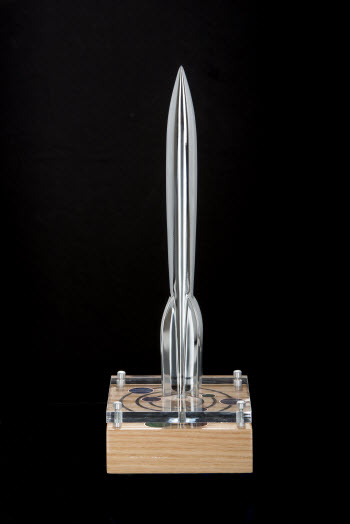
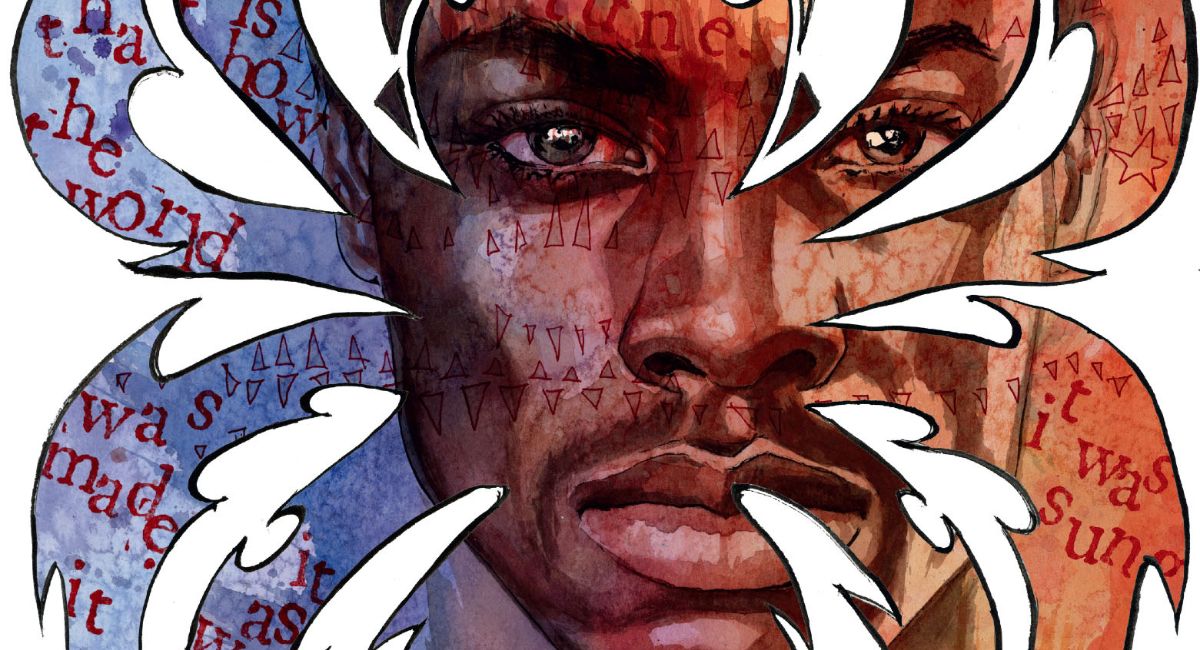




“Besides an interesting balloting procedure known as “Instant Runoff Voting” (which was due to be amended this year to discourage slate/block voting),”
‘Fraid that’s incorrect. The changes being made and proposed are to stop slate/block *nominating*. If 10-20% of the total nominators all nominate in lock step for a slate, it’ll dominate the ballot, as happened this year and last. That small number will then be overwhelmed by the voting majority, which has shown the last two years via No Awards that it does not like slates at all.
This year, the main slater added in a few “human shields” to their slate; items that’d probably make the ballot without the slate, so he could claim he “won” if they beat No Award, which in most cases they did. Alas, even though reasonable items did beat out No Award, they’re still tainted by not having had any real competition. For example, only the “shield” Sandman would’ve made the final Graphic Story ballot without having been slated; the four items which should have made it if the slate hadn’t happened weren’t there to compete with it.
The methods which go into effect next year are that folk can nominate five items in each category, but the top six will appear on the ballot. Also passed was something named “E Pluribus Hugo”, which is complicated enough to explain that I won’t try here; Google it for details. Passed for the first time this year (changes required being passed two years in a row) are an adjustment to E Pluribus, and adding a third stage to the voting that would allow members to vote items in the top 15 of nominations off the final ballot, which would consist of the top six items not voted off. Voting off would require a supermajority of such votes.
Thanks for the update!
While MAC2 did a good job of posting newsletters, I haven’t seen any in-depth reporting on the Business Meeting.
So voters can vote AGAINST a nominee?
Amazing comics work published in 1941, and what’s listed is just the tip of the iceberg. There used to be someone on line who was something of a Bob Kane apologist who insisted that Bob Kane drew all the early Batman stories in Detective and Batman. He seemed to disappear after a well researched article appeared on line which clearly demonstrated that every panel in the first Batman story in Detective Comics #27 was swiped from a previously published source (newspaper strips, Big Little Books, etc) and that was before it was discovered that the plot of the first Batman story was heavily borrowed from a Shadow pulp story.
There are videos up if you want to see the multi-hour entirety of the 2016 WSFS Business Meeting. If three-stage voting passes next year as well, starting in 2018 the Hugos process will look like;
1) Nominate things. Up to five in any category.
2) Top 15 nominees in each category are put up for a up/down vote on whether they should be on the final ballot. If something gets a supermajority of “no it shouldn’t”, it’s removed from the nominations list.
3) The top 6 nomination getters (from round 1) that were not voted off make up the final ballot.
4) Members do the Instant Runoff vote on said final ballot.
Comments are closed.